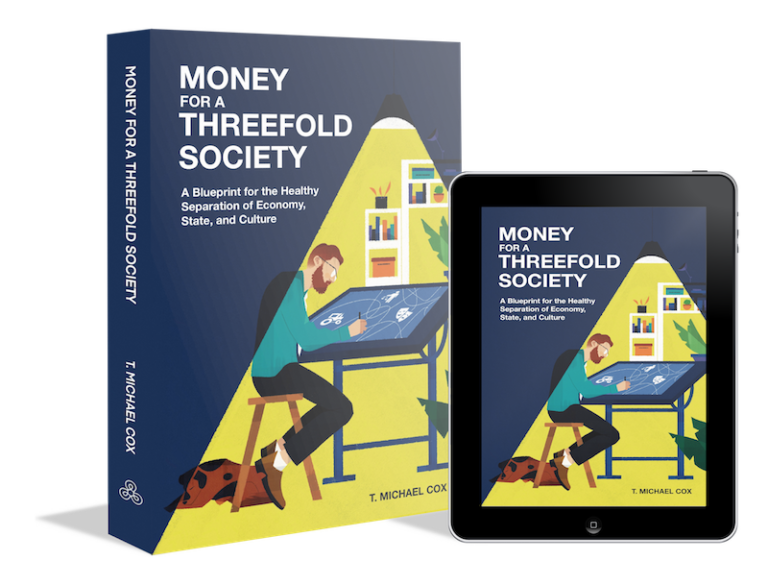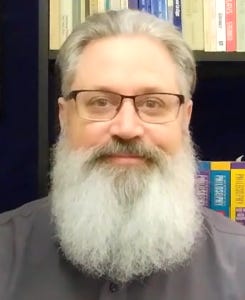Michael Cox has recently published a book on how money can support the threefolding of society. The title of the book is Money for a Threefold Society. For details, click here.
EW: Hi Michael, Congratulations on the publication of your book! I really appreciate your taking the time to answer some questions.
TMC: Thank you for this opportunity to let people know about my new book!
EW: How did you become interested in Threefolding?
TMC: My story begins when I was at university in the 1980s, in Saskatoon. A friend there, Bill Metke, first told me about the threefold social organism. I got hooked, and ever since, I’ve been studying what Steiner said about threefolding – for over 35 years now. I even learned German so I could read Steiner in the original.
EW: Who do you hope will be interested in reading your book?
TMC: Young and energetic people who are serious about wanting to bring about real, positive social change, for themselves and future generations. And people who want to invest in a better future.
EW: In your book you describe a new money system, called threefold dollars, organized by local financial communities. Can small groups establish one of these? Do people have to live in the same area?
TMC: Sure, local groups can create trade circles – which is how threefold dollars circulate from person to person. When someone buys a product in threefold dollars, the seller has to find a way to pass this alternative currency on down the chain to their suppliers. Eventually the threefold dollars need to circulate back to the original person again, so the cycle can repeat. It’s possible for a small group of people to do this. In my book I describe a very small trade circle with just three people in it. However, the idea is to link many people together into a larger national or even international network.
Developing a large-scale alternative currency is crucial to social threefolding. Steiner wrote about the necessity for a new currency that is to be administered by the economic life, independently of the state. In his lectures on economics, he indicated how this new money is to be based on means of production. In my book I follow up on Steiner’s ideas for a new money system, and explore how this relates to his indications for ownership and social threefolding.
EW: Do you know of any communities that are trying out the ideas that you put forward in your book?
TMC: Not really. There are people who are involved in what is called a complementary currency. Threefold dollars are different. They are an alternative currency that has a much bigger goal in mind - to replace the entire currency system of a country or region. Because threefold dollars are based in assets, the money system can become independent of the state, of all governments. This is part of what is necessary for society to separate into three members, as Steiner describes. The WIR Bank in Switzerland has an asset-based currency like this, but they have more of a local focus only.
EW: What influence do you think implementing the ideas for a financial community would have on society?
TMC: There is potential here to completely change society for the better. The threefold dollar system is closely tied to financing of properties and assets, like farms, factories, businesses, schools, and so on. This financing is based on a different form of ownership advocated by Steiner - which might be called private-social ownership. It is really this different form of ownership that is going to make the biggest difference, because it will lead beyond the false dualism of capitalism or socialism – to a more fair and sustainable threefold society.
EW: Are there any legal hindrances to people starting a financial community?
TMC: The WIR Bank, which is most similar to a financial community, was subjected to the Swiss banking act within a year or two of starting operations back in the 1930s. So it is highly likely that a financial community would also fall under banking laws, depending on the jurisdiction. In my book I describe how a fledgling financial community might start off working alongside a conventional credit union, which could underwrite threefold dollar loans until it is able to support itself independently.
EW: Thank you so much for answering these questions, Michael! I hope that the sales of your book are strong and that thanks to your work, people will be inspired to look at money differently.
TMC: Thank you!
.
Michael’s book is published by:







Thanks for sharing. It’s great to get a little bit more of an overview of the book. I look forward to reading it.
Awesome